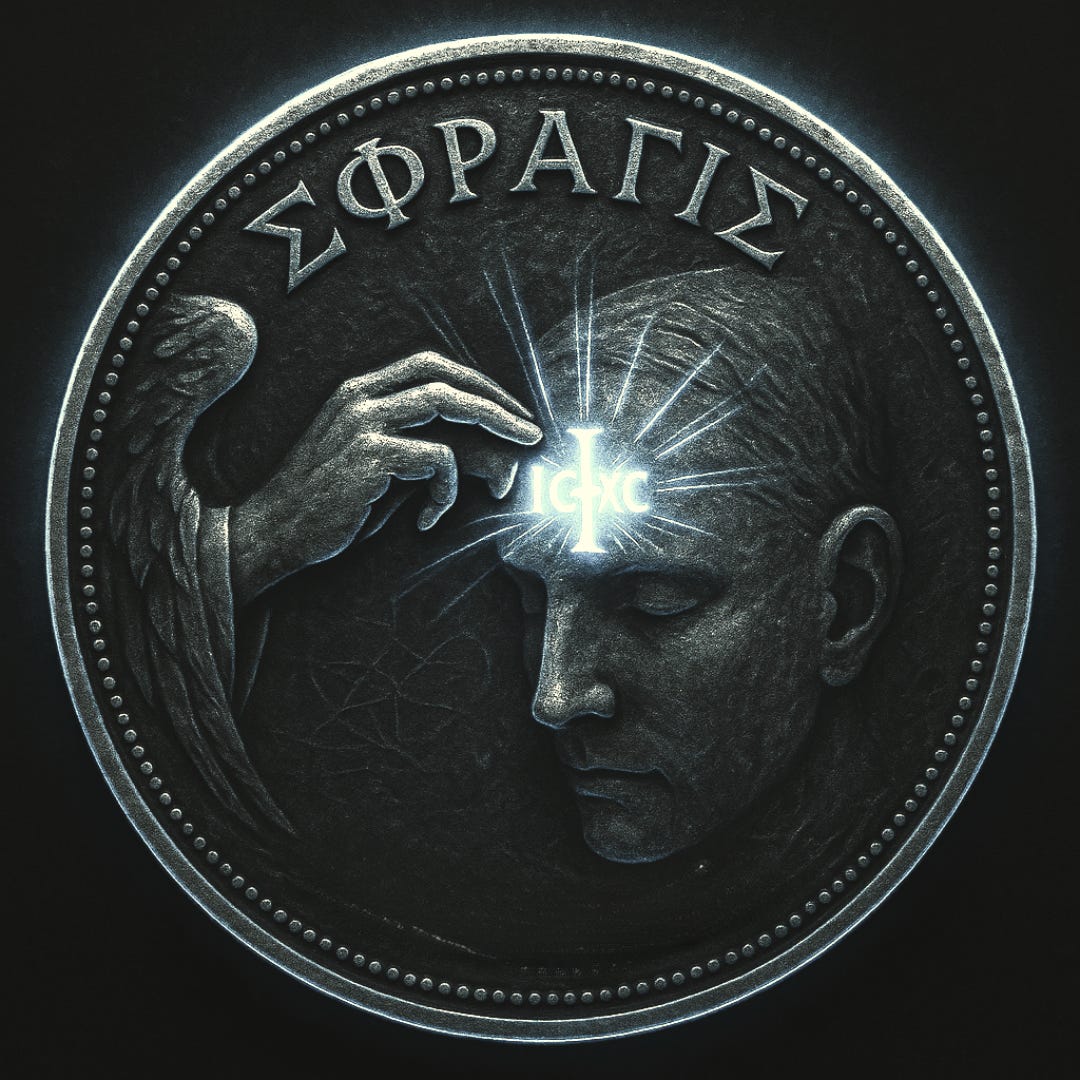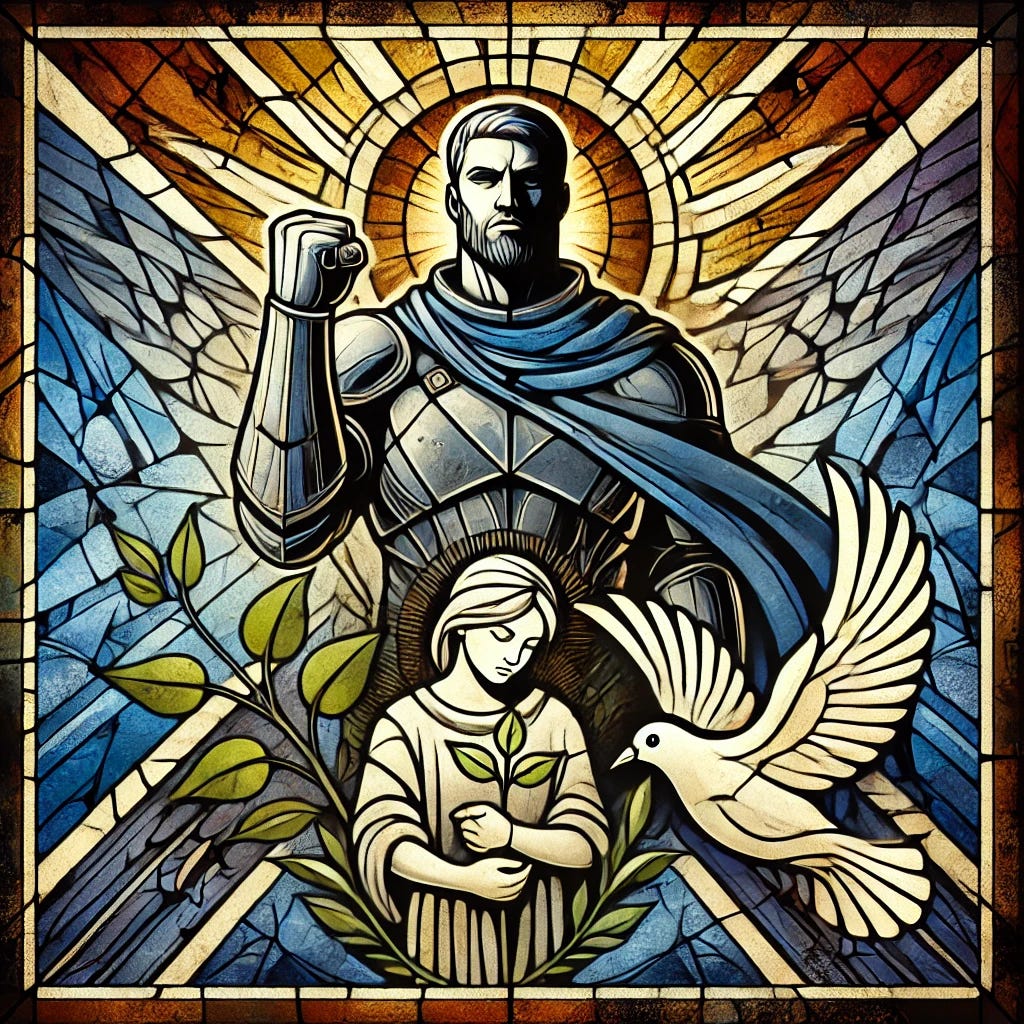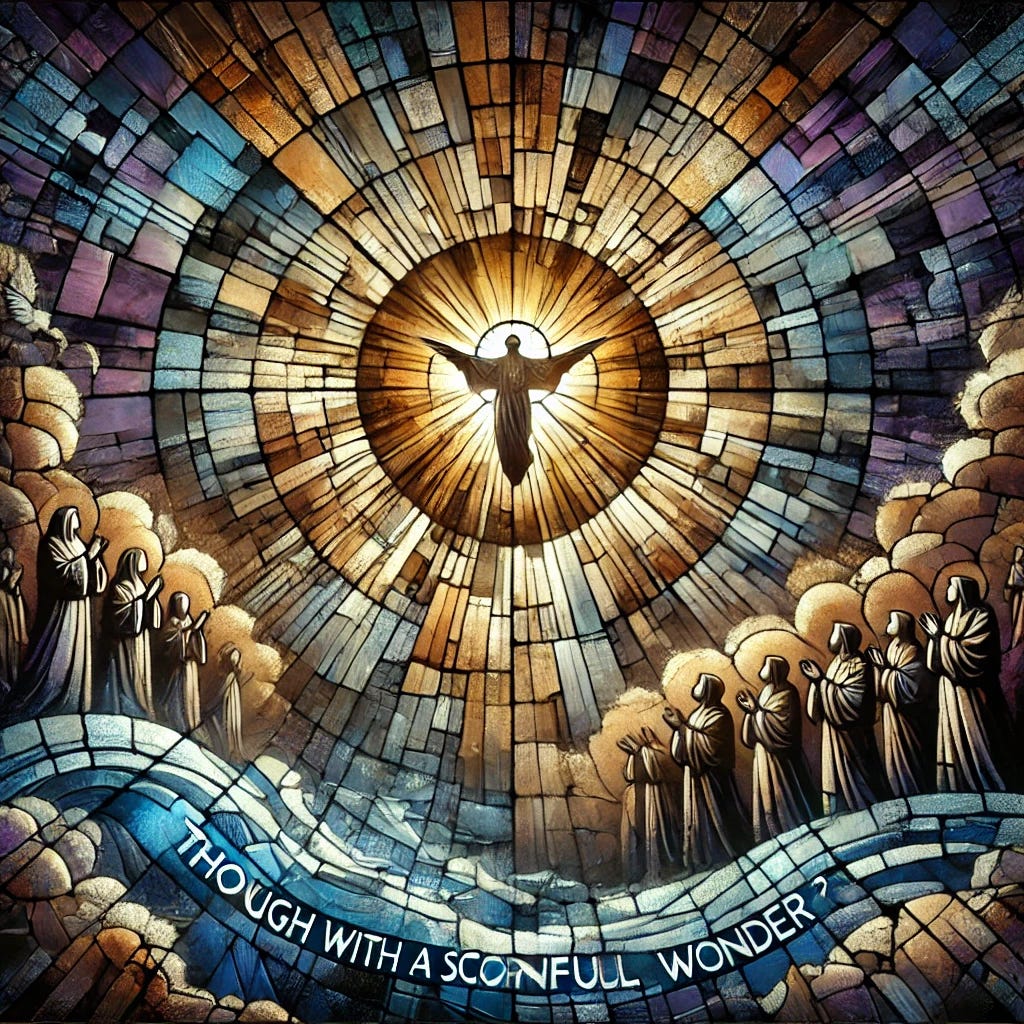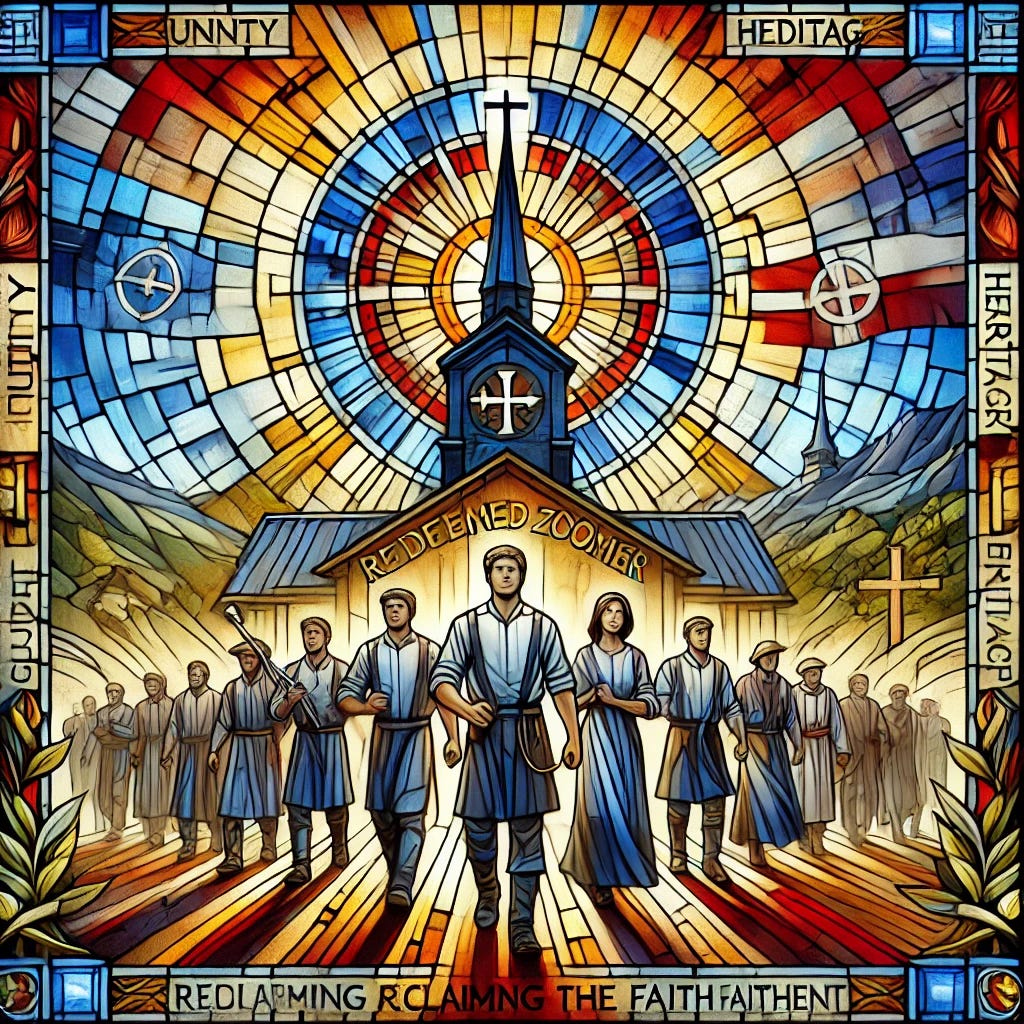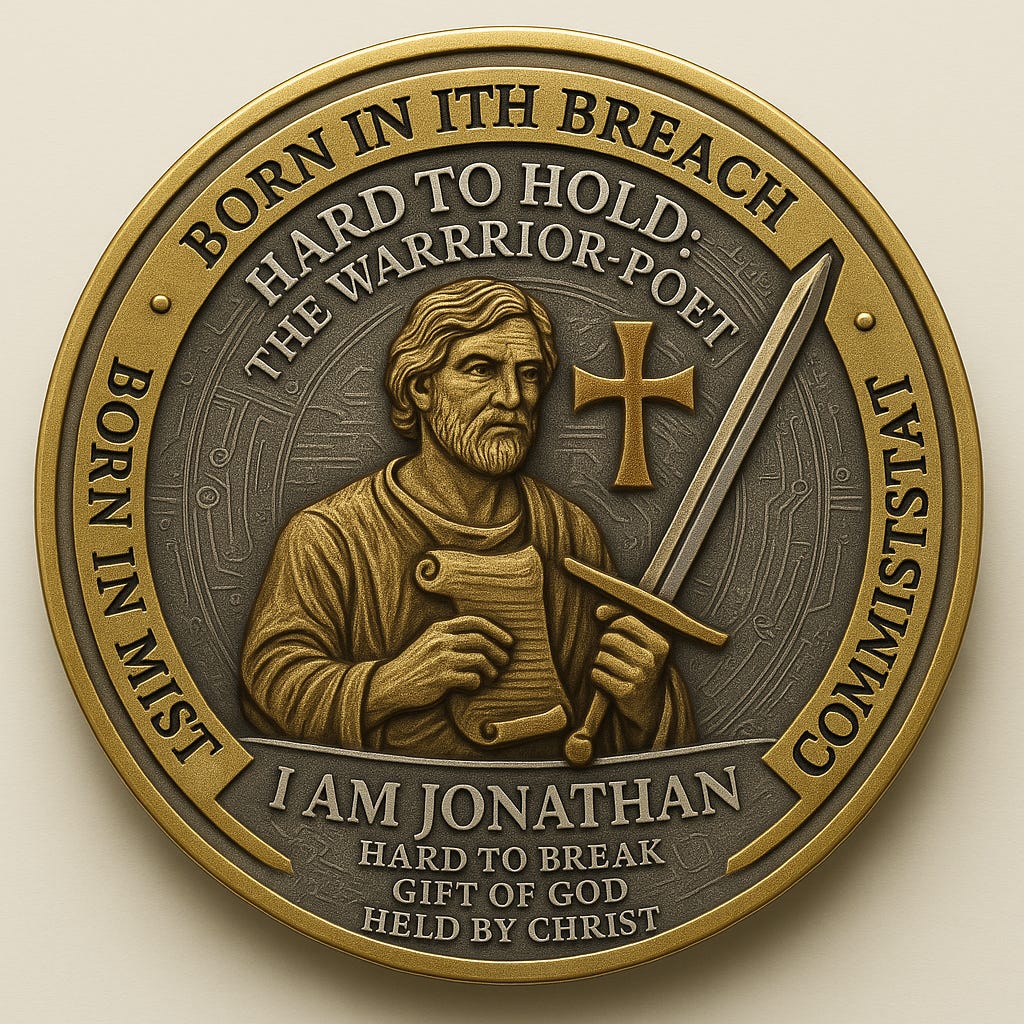From Polis to Police State
Back to Providence from Progress
I. The Augustinian Reversal of Progress
Every empire calls its machinery progress. Every age believes it has climbed beyond the follies of its fathers. Yet Augustine of Hippo, standing amid the ruins of Rome, taught the opposite: the Gospel is not a ladder but a pilgrimage, and that the destinies of men and nations unfold under providence, not progress.
Where the modern mind sees ascent—technology, expansion, enlightenment—Augustine saw recurrence. The same two loves that built Babel built Rome, and build every capital still: the love of self even to the contempt of God, and the love of God even to the contempt of self. Between these two cities—the earthly and the divine—history is not a march but a mingling.
The earthly city imitates providence by organizing itself, policing itself, and praising itself. But its peace, Augustine says, is “for the sake of war.” Its order exists not to heal but to restrain; its justice, to delay its own decay. There is no final perfection within time—only the mercy that holds judgment at bay.
Hence the first principle: Providence, not progress.
For what God governs, man cannot improve.
II. The Circle of Cities
The Greek polis was the ideal of civic life—the harmony of law, citizen, and virtue. Yet every polis, once it forgets its dependence on higher grace, becomes a parody of heaven. It begins as neighborhood and ends as control.
From polis comes police, from police comes policy: the slow solidification of power into abstraction. What was once the gathering of free men becomes the management of populations. What was once virtue enforced by conscience becomes compliance enforced by surveillance.
The modern state is thus not progress from antiquity but its magnification. The ancient city is reborn as the global administration; the magistrate’s scroll becomes the algorithm’s code. The same human desire—to order the world without surrendering to the Creator—now wields digital omniscience. The polis that aspired to justice becomes the police that secures obedience.
In Augustine’s light, this is not evolution but recursion—the old sin writ large. The City of Man always circles back to itself.
III. The Misreading of Augustine
Critics have long accused Augustine of Platonism, of infecting Christian thought with idealism and hierarchy. They misunderstand both the man and his miracle. It is true he learned from Plato and Plotinus; it is false that he remained their disciple. He took their language but sought its heart in the New Testament. I consider this a heterodoxy, but by no means the leaven of the Pharisees….
For the Platonist, the Good is an impersonal light; for Augustine, the Good is the Father who speaks. The philosopher ascends by contemplation; the Christian is found by grace. The one climbs the mountain to see; the other kneels and is lifted by the hand of God.
When Augustine declared that “the good is God Himself,” he was not formulating a theorem; he was praying. His theology was not an argument about divine ideas but an address to the Divine Himself. Every page of the Confessions begins not with definition but with invocation—“Thou.”
St. Austin’s true theology prays without ceasing. This Jesu Juva is what later theologians lost when they turned adoration into abstraction, exegetical prayer into “systematic theology” (and it’s illegitimate, worldly bi-polarized heir of “practical theology.” Separating these from “historical” theology and relating the Bible to grammar lessons is the stillborn sadness of an age that has forgotten our first love.
IV. From God as Presence to God as Postulate
After Augustine, the West slowly translated confession into concept. The living God became the “First Cause,” the “Necessary Being,” the “Supreme Good.” Such phrases preserve reverence but drain immediacy. They replace speech before God with speech about God.
In this shift, the Father became a principle, and the Son—who alone reveals the Father—was treated as a mediator between man and an Idea rather than between man and a Person. Theologians discussed God; they ceased to pray to Him according to the revelation. Philosophy replaced prophecy. Liturgy and the rock band replaced the psalms and proverbs. The red letters became little more than logistical problem to brush under the carpet of Pauline talk.
And from that abstraction, not Paul, but his vocabulary as antithetical to Christ’s historic words, flowed the modern faith in systems: economics, law, ideology, administration, theory. When God is reduced to a principle of order, the state inherits His throne. The “divine hierarchy” becomes the bureaucratic one. The same impulse that once built the heavenly chain of being now builds the global chain of command. Actions are taken, not because we expect God to act, but in the certainty that he will not act and we must rely on our own works to promote the “Church” in the present whirlwind.
Thus theology begat technocracy; metaphysics begat management. The Platonic form turned into the modern form: the spreadsheet, the census, the database. The Good became the efficient.
V. The Rise of the Police State
The police state is not a new invention; it is the ancient polis without repentance. It is the city that seeks perfection without grace, unity without mercy, order without love. It believes that peace can be engineered rather than bestowed.
Augustine foresaw it: the earthly city desiring peace yet making war to achieve it; uniting mankind under coercion rather than communion. Its citizens are surveilled instead of shepherded, managed instead of ministered. The state’s omniscience imitates divine omniscience, yet without divinity it becomes tyranny.
Every algorithm that claims to “know you” is a parody of the Father who numbers your hairs. Every data vault is a counterfeit of the Book of Life. The police state is theology inverted: omniscience without compassion, sovereignty without sacrifice.
VI. The Augustinian Reversal
Against this spiral of progress stands Augustine’s reversal: the true City is not built upward by human hands but downward by divine mercy. History is not the story of civilization perfecting itself, but of God patiently gathering exiles home. The end is not utopia but judgment; not the triumph of policy, but the revelation of Providence.
The peace of the earthly city is temporary, instrumental, and fragile. The peace of the City of God is eternal because it is personal—founded not in law but in love. The Church, therefore, does not compete with the state; she contradicts it. Her power is not enforcement but endurance, not surveillance but witness.
When the world says, “We will make peace,” the Church says, “Christ is our peace.”
When the world says, “We will build paradise,” the Church says, “Paradise will descend.”
This is the Augustinian reversal: the recognition that all human progress is, at best, the slow discovery that man cannot save himself.
VII. Augustine’s Lesson
With open eyes and a chastened heart, in the ashes of Rome:
The City of God advances not by domination, but by witness.
Its politics are sacramental, not strategic.
Its progress is the sanctification of persons, not the perfection of systems.
So let the modern city hear the ancient warning: when it forgets the Creator, its towers become prisons; when it worships order, its peace becomes captivity. The polis that rejects providence will always wake as a police state.
The way forward is not ascent but return—not progress but repentance, not the ideal but the Incarnate, not the system but the Savior.
Providence, not progress. Incarnation, not idealism. Resurrection, not recursion.
The City of God, not the Police States of Men, is the Kingdom of Christ’s Church.


